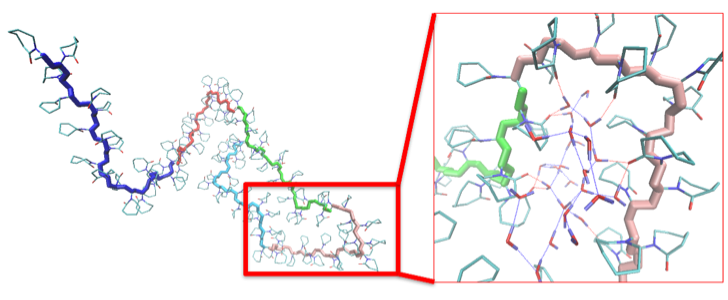Biomedical Engineering
AHPCC is critical to training the next generation of biomedical engineers in emerging biomedical informatics techniques. As machine learning continues to become more prevalent in biomedical research involving big data, AHPCC will be a critical resource for the Department of Biomedical Engineering. Currently in the department, molecular dynamics (MD) simulations have been used to investigate lower critical solution temperature (LCST) transition of responsive polymers and other polymeric systems with targeted application for hydrophobic interaction chromatography (HIC) for the purification of protein therapeutics and gene therapy products. Dissipative Particle Dynamics (DPD) simulations are also used to investigate membrane formation processes for effective separation of biomolecules and virus particles. Some researchers are also involved in developing organic solvent resistant nanofiltration membranes for biopharmaceutical purifications using MD simulations.

Figure 1: Water molecules trapped inside a partially collapsed thermo-responsive polymer chain